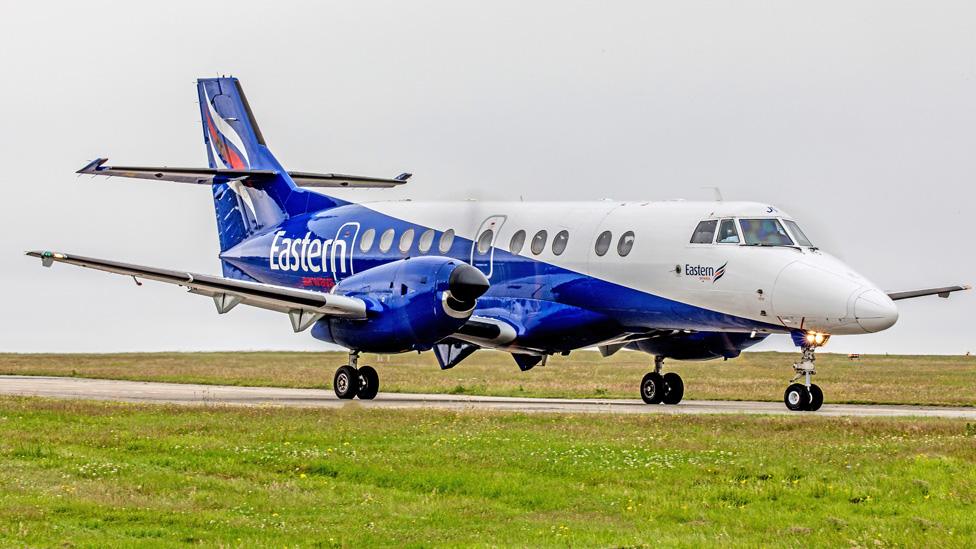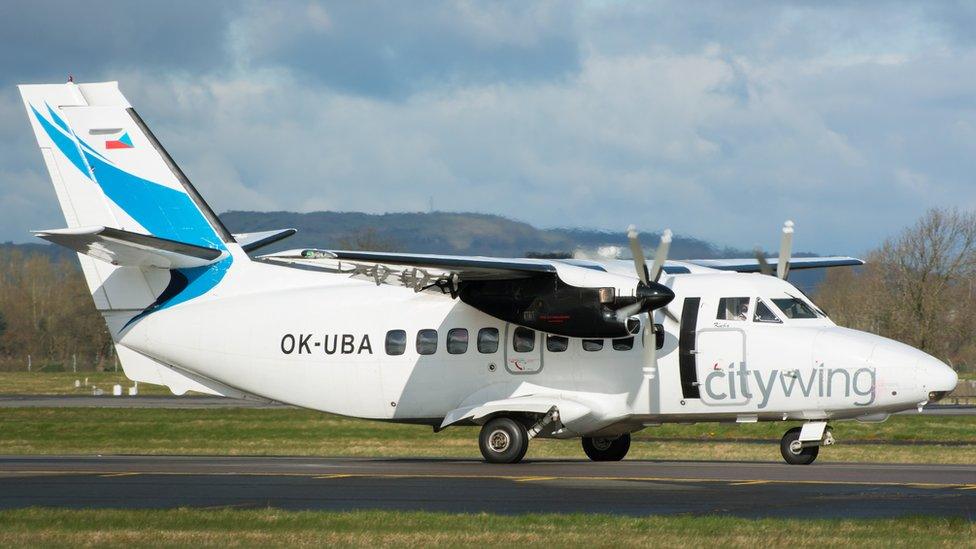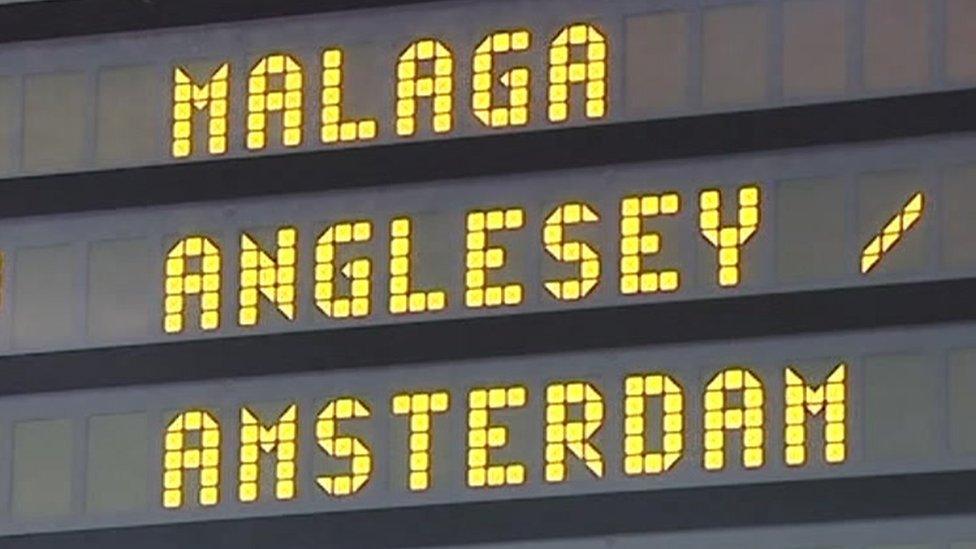Eastern Airways: Cardiff-Anglesey air link scrapped
- Published

The Eastern Airways-operated Cardiff-Anglesey route stopped when the Covid pandemic took hold
Publicly funded flights between Cardiff and Anglesey will not resume after a two-year suspension in the pandemic.
The Welsh government said the service could no longer be justified economically and environmentally.
The up to £2.9m a year spent on funding the flights will be diverted to improving north Wales public transport.
Plaid Cymru called it a "kick in the teeth" for efforts to unite Wales through transport, the Tories said the decision should have been made earlier.
Deputy Minister for Climate Change Lee Waters said the move would "benefit more people" and help Wales reach its climate change goals.
The Welsh government said 77% of the people who had been travelling on the flights between Cardiff Airport and RAF Valley used them for work purposes.
But the move to more home working and online meetings meant post-Covid demand forecasts indicated the 29 seater planes would be flying half-full in future.
Carbon impact analysis - commissioned by the government - concluded that 28 seats needed to be filled to bring the per passenger aircraft emissions down to the same level as would be emitted by someone driving the same distance on their own in a car.
The study showed the service had a more negative impact on the environment than any other form of travel between Anglesey and Cardiff, unless it was flying close to full capacity every day.

The previous operator Citywing went into liquidation
The decision means seven redundancies of people employed by Cardiff International Airport Limited to run Anglesey Airport.
The service was introduced in 2007 to improve north-south links.
It initially faced criticism for low passenger numbers but these eventually rose, with more than 14,000 travelling in 2018 and 2019.
But the Eastern Airways-operated route hadn't been flying since the pandemic took hold in March 2020.
Over the past five financial years, more than £7.3m has been spent to subsidise the service.
Both the Welsh Conservatives and Liberal Democrats have previously called for the flights to be scrapped, while Plaid Cymru has said it believed the service was still needed.

The service was introduced in 2007 to improve links between north and south Wales
The Welsh government said it would spend the funding it usually offered the air-link on accelerating work on north-south connectivity within the North Wales Metro programme.
This meant faster progress on the Holyhead Masterplan, Bangor Gateway and Wrexham Gateway schemes and new stations being developed for Broughton and Greenfields, it said.
Work to improve rail journey times between Holyhead and Cardiff and improve integration with other sustainable ways of travelling along the route will also be fast-tracked.
The government said it was also looking at options for doubling the bus service frequency between Caernarfon and Porthmadog to improve connectivity to rail links to South and Mid-Wales.
Meanwhile £4m worth of funding was announced alongside the decision for Bangor University to help with work to develop better broadband coverage in rural areas.
Demand 'simply isn't there'
There was a furious response to the ending of the air link from Ynys Môn Senedd member Rhun ap Iorwerth, who called it a "real kick in the teeth for efforts to unite us as a nation through the transport system".
"Every penny of the money spent on the air link should go towards improving north-south transport connectivity, but that commitment is not there," he said.
Welsh Conservative transport spokeswoman Natasha Asghar said it was the "right decision" to scrap the flights but it should have been taken earlier.
"The pandemic has drastically changed the way people work and with many now working from home the demand for the air link simply isn't there," she said.